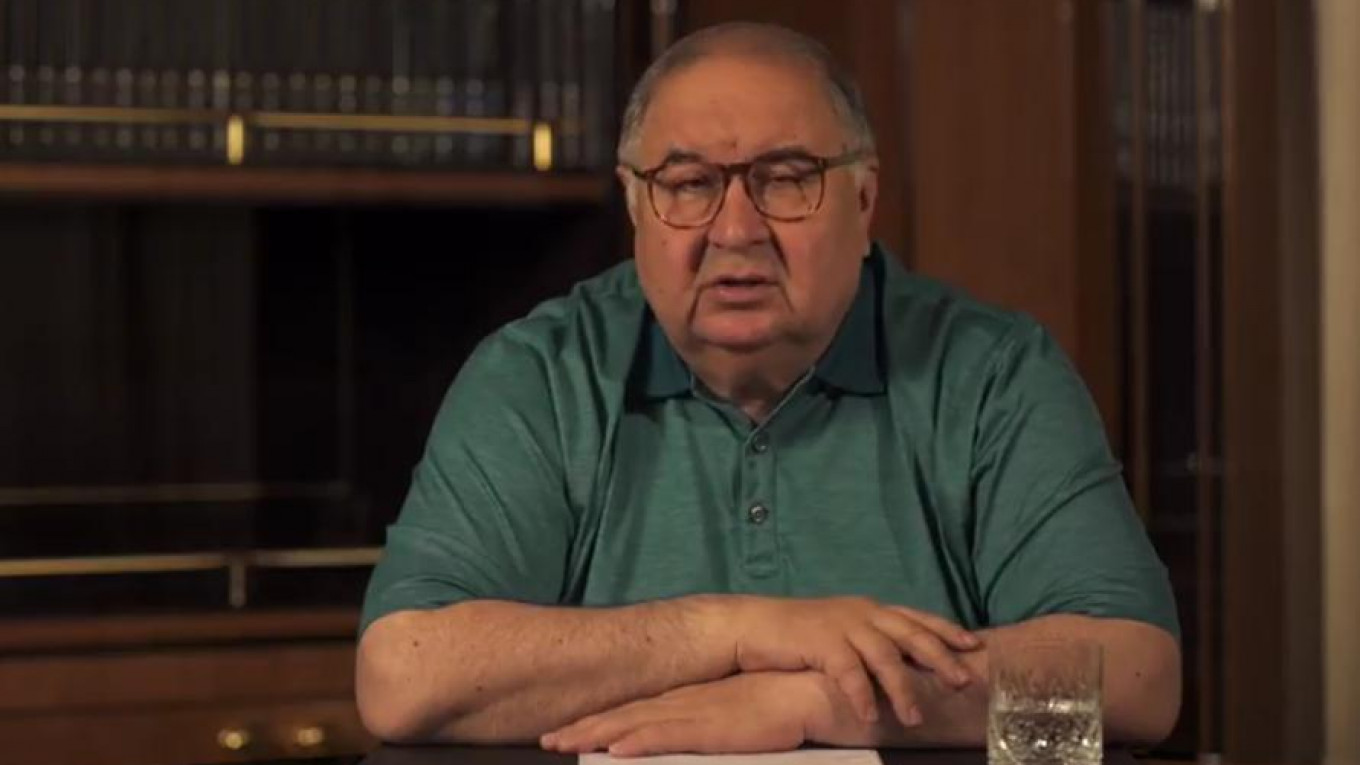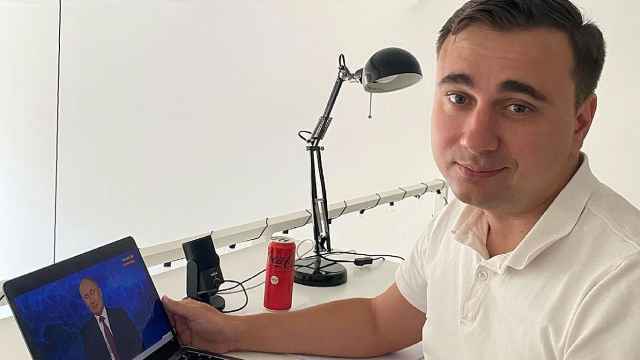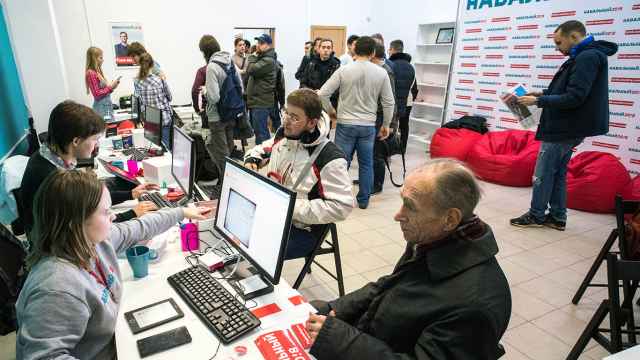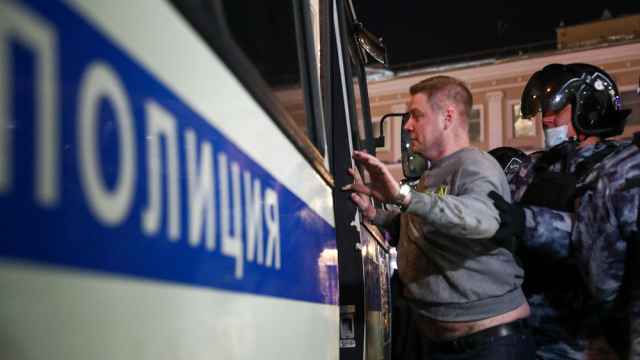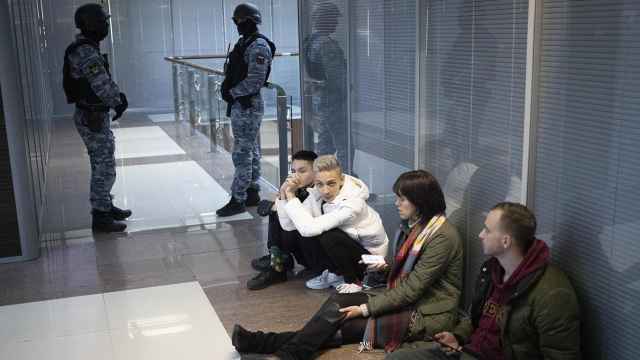For Russia’s powerful elite, opposition leader Alexei Navalny inhabits a remote parallel universe too far off to even notice. His investigative reports on the prime minister’s alleged corruption may get millions of views on Youtube. His protests may gather huge crowds. But for Russia’s leadership, these are issues to manage, not to worry about.
And if you’re a member of the inner circle, the last thing you should do is engage in direct discussions with Navalny. That, after all, would put him on par with the country’s leaders. Vladimir Putin and members of his elite have never even mentioned Navalny by name. That is, until May 18, when oligarch Alisher Usmanov released a 12-minute video address to “Alexei-damn-you-loser-Navalny.”
“You must apologize, and you must answer before me, Lyosha,” said Usmanov, who is worth $15.2 billion dollars according to the current Forbes ranking. The video was recorded on his famous Dilbar yacht, the world’s largest such boat.
In the unexpected video rant, which gained 1.2 million hits in just a few days, Usmanov responded to Navalny’s allegations that he had bribed Prime Minister Dmitry Medvedev by gifting him a mansion. Navalny, in turn, answered by inviting Usmanov to a live debate. Usmanov released a second video: “Damn you again, Navalny, and we will debate in court!”
But the debate has already started. Their exchange is arguably the first real political debate between Russia’s rulers and the opposition in the last 15 years.
For his part, Usmanov is not a typical Russian mogul. A native of Uzbekistan, he was born the son of the Tashkent city prosecutor. In 1980, he was imprisoned and spent 6 years on extortion and embezzlement charges alongside the son of a regional KGB deputy.
It was a highly unusual turn of events for sons of such high-profile officials. Even today, few details of the case are known — and Usmanov wants to keep it that way. In his address to Navalny, he reminded the opposition leader that the Supreme Court of Uzbekistan had already cleared him of all charges.
In the 1970s, foreign currency transactions, the antiques trade and black marketeering — still considered crimes under the communist system — were natural ways of making money for the USSR’s elite youth.
Those who know Usmanov say they doubt he could actually have been guilty of extortion or embezzlement: Why would he do it? They also doubt the rumored rape charges that Navalny referred to in his video. This, by all accounts, is what infuriated Usmanov in the first place.
“You said that I was doing time for rape. You wanted to blur the line between a man and a monster. Of us two, you are the criminal,” Usmanov said in his video. He was referring to Navalny’s suspended prison sentence for embezzlement, charges widely viewed as politically motivated.
In Russia, major businessmen often help the authorities. It allows them to insure their wealth against political seizure. Usmanov’s business deals in the Russian media and his real estate transactions with Medvedev-controlled foundations are assumed to be favors to the Kremlin.
But Usmanov is bigger than the average mogul. He does not need to hedge himself against the system, because he is the system. He may even consider himself among those select influential players who shape Russia’s future. He is part of the team.
To a large extent, Putin’s strength is his indifference. For practical reasons, he kills discussion by not accepting the mere concept of it: When there is no debate, it is impossible to lose a debate. Putin never exchanges views with anybody; he informs.
The system that Putin has built is designed to never express emotion. The less human it looks, the more powerful it appears. And ostensible ignorance of Navalny’s activities fits into this broader agenda.
As one former Russian official put it: “If you’re part of the system, you don’t fight with the opposition. You make the system do it for you.” In practice, this means: You don’t argue with Navalny. You either ignore him or you take him to court.
But Usmanov got too emotional. He fell victim to a conflict between two sets of unwritten rules. As a member of Putin’s circle, he should have abstained from arguing. But as an insulted businessman with a troubled past, he couldn’t resist picking up the gauntlet. And he seemed to enjoy it.
With it, political debate in Russia was born anew.
A Message from The Moscow Times:
Dear readers,
We are facing unprecedented challenges. Russia's Prosecutor General's Office has designated The Moscow Times as an "undesirable" organization, criminalizing our work and putting our staff at risk of prosecution. This follows our earlier unjust labeling as a "foreign agent."
These actions are direct attempts to silence independent journalism in Russia. The authorities claim our work "discredits the decisions of the Russian leadership." We see things differently: we strive to provide accurate, unbiased reporting on Russia.
We, the journalists of The Moscow Times, refuse to be silenced. But to continue our work, we need your help.
Your support, no matter how small, makes a world of difference. If you can, please support us monthly starting from just $2. It's quick to set up, and every contribution makes a significant impact.
By supporting The Moscow Times, you're defending open, independent journalism in the face of repression. Thank you for standing with us.
Remind me later.



